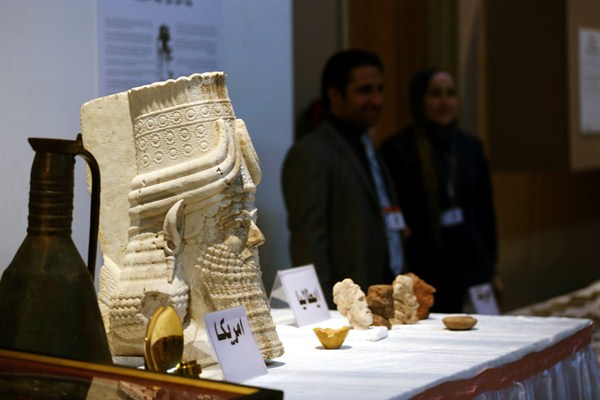Last month, the government of Italy and UNESCO, the United Nations’ cultural agency, signed two agreements that aim to protect cultural heritage in conflict areas. One of these agreements will lead to the creation of a training center in Turin. The other agreement formalized the Italian government’s intent to create a task force, supported by UNESCO, for dealing with and safeguarding cultural property and heritage during times of crisis.
According to UNESCO’s director-general, Irina Bokova, this so-called United for Heritage task force would bring together cultural heritage experts and members of Italy’s national police, the Carabinieri, which have a long history of recovering looted art and have also been deployed abroad in Iraq and Afghanistan as peacekeepers. This task force would focus specifically on response-oriented missions, such as combating looting and the illicit trade of cultural property.
Currently there are no plans to deploy this task force in active war zones. Dario Franceschini, Italy’s minister of cultural heritage, activities and tourism, has said that police, archaeologists, art restorers and art historians are already “ready to go where UNESCO sends them.” Nevertheless, these formal commitments by Italy are better read as efforts geared toward further establishing itself as a world leader in protecting cultural heritage. Realistically, it is unlikely that last month’s agreement with UNESCO will lead to the creation of an operational task force anytime soon. But that doesn’t mean other advances haven’t been made to protect cultural artifacts threatened by conflict.

